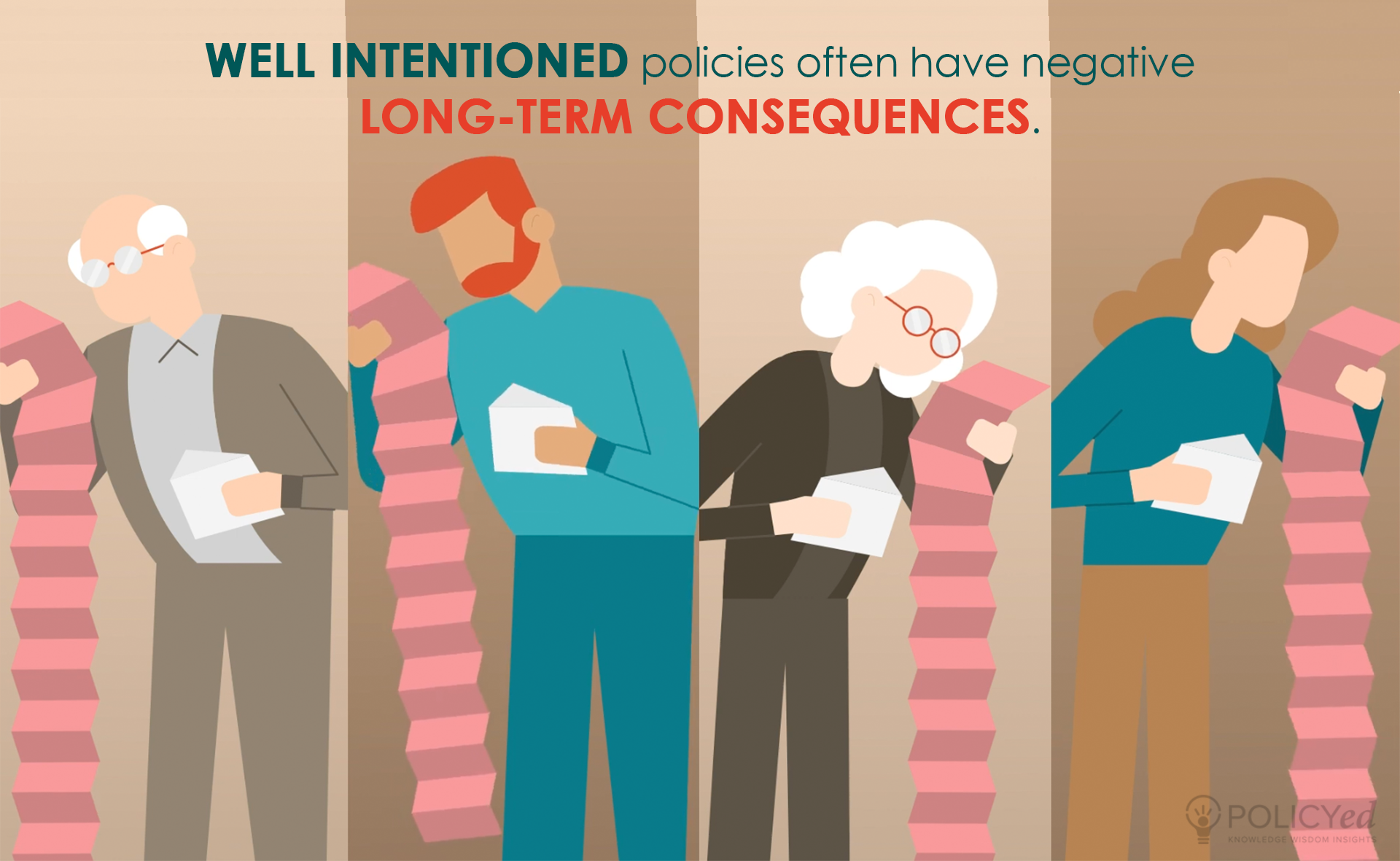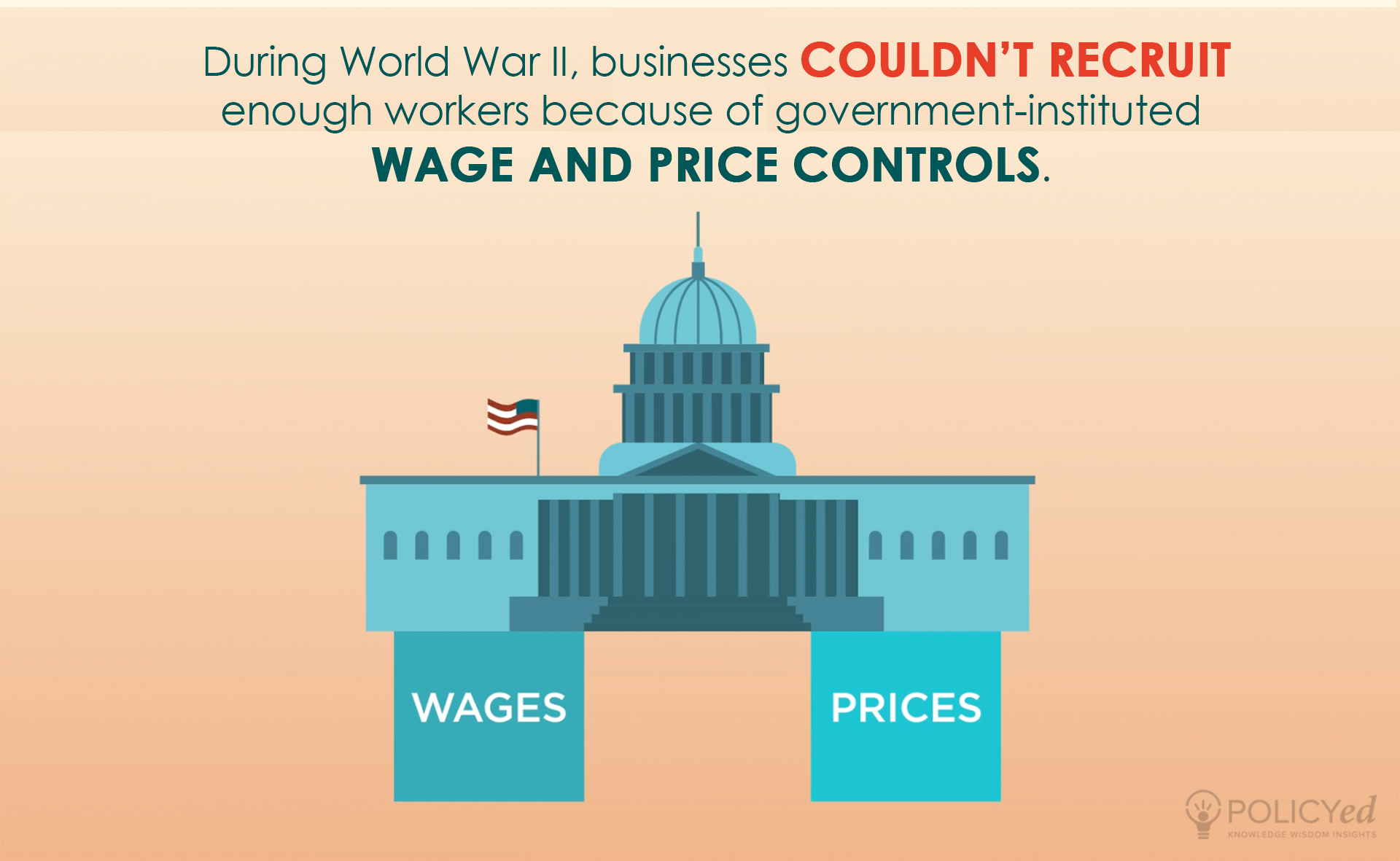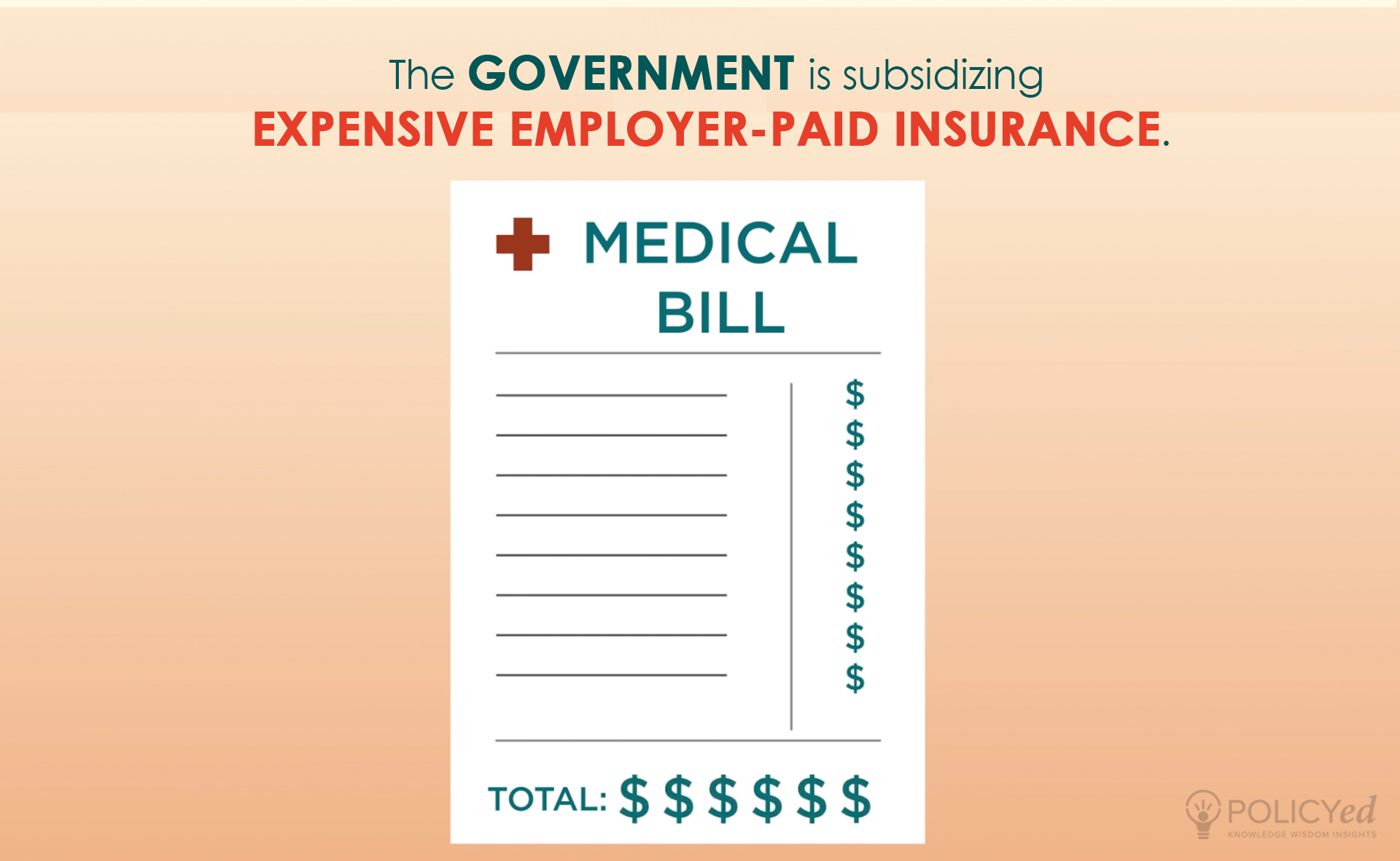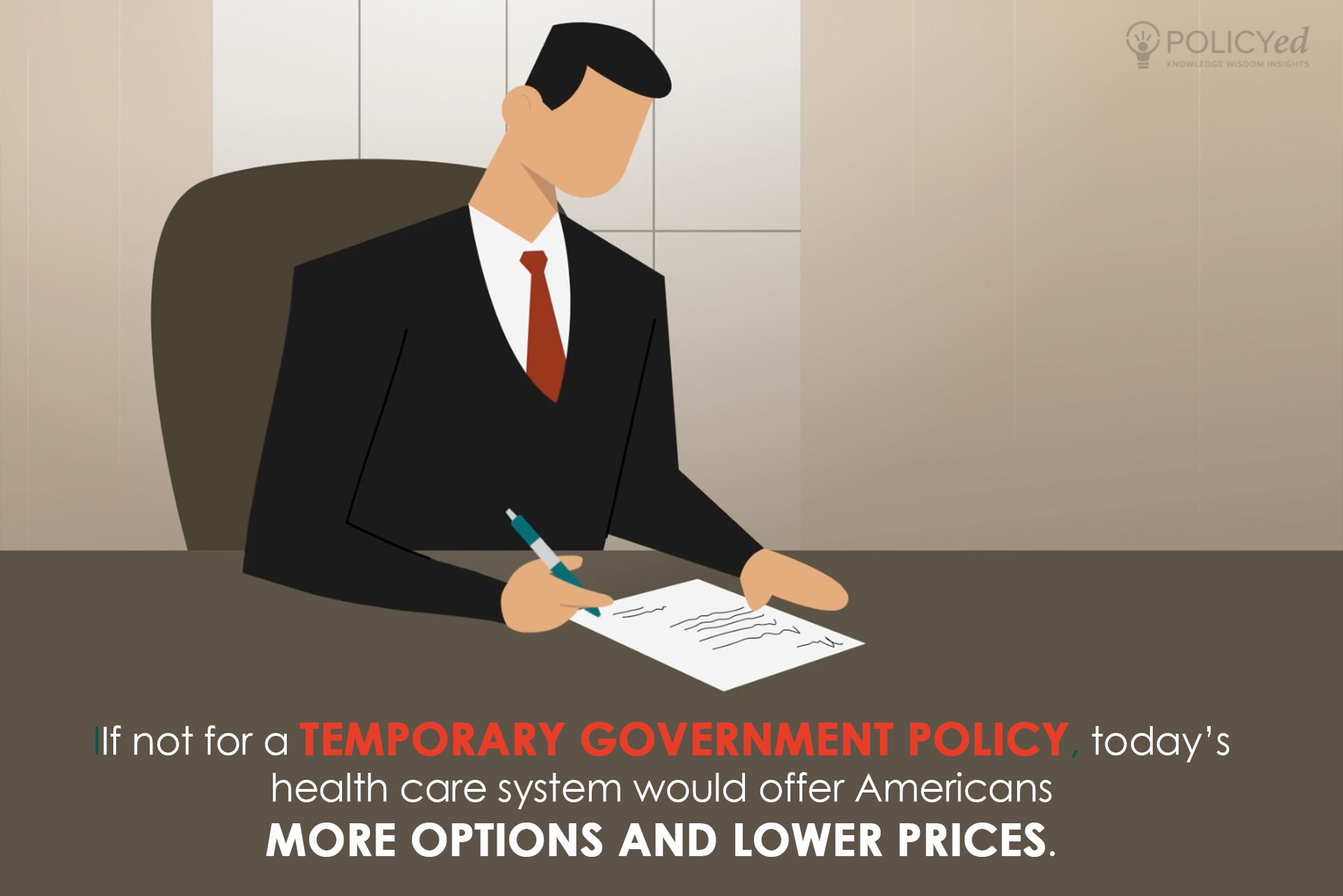Key Facts
Wartime Decisions
During World War II, the government instituted wage and price controls to help with the war effort. But there was a problem. Businesses couldn’t recruit enough workers without offering higher wages. To sidestep these restrictions, employers started paying for their employees’ health insurance as a new benefit. Businesses and workers then successfully lobbied Congress not to count health insurance as income, effectively making it tax free.
Unfortunate Consequences
When wage and price controls were lifted after World War II, the tax-free status of employer-paid medical care remained in place. Today, the government is still subsidizing expensive employer-paid insurance. These plans give patients fewer reasons to consider the cost of their health care choices, encouraging them to use more care than they really need. Ultimately, this drives up medical costs and health care premiums for all.
Learning to Look Ahead
If not for a temporary decision made in the midst of a world war, today’s health care system would offer Americans more options and lower prices. When a crisis happens, we expect our policy makers to respond. But we should remember that policies that sound good in the short term can have bad long-term consequences.




